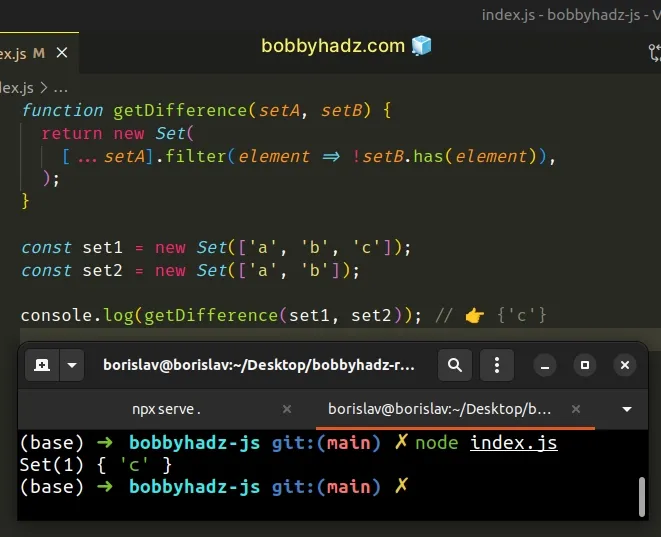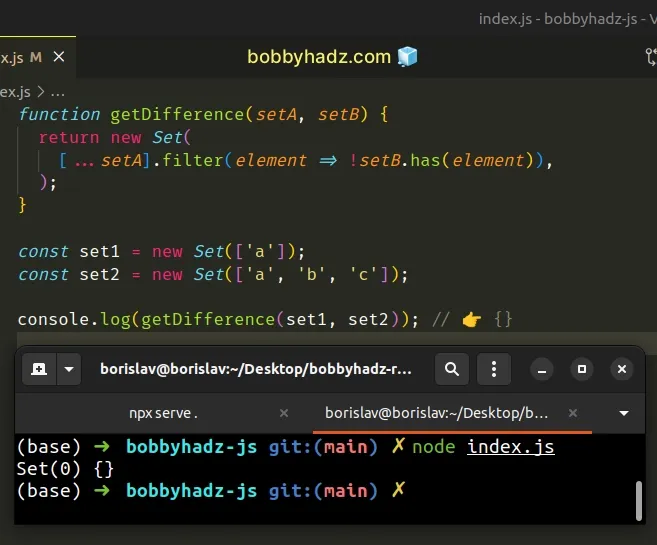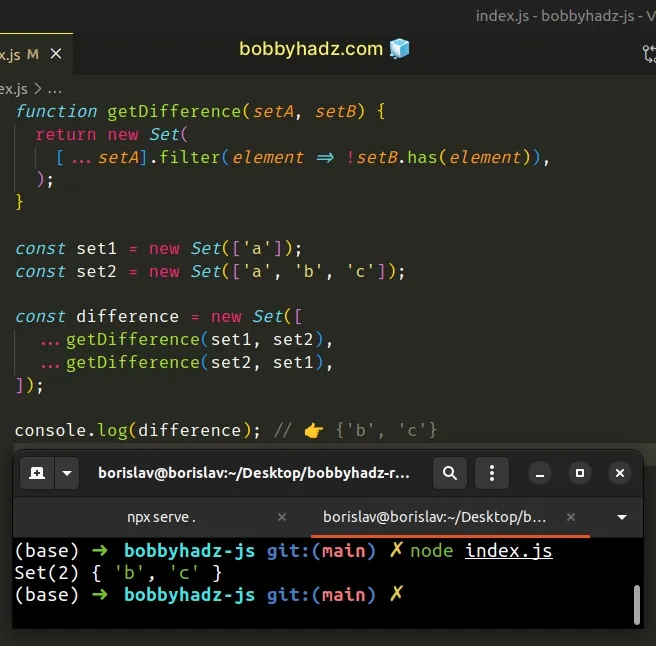Get the Difference between Two Sets using JavaScript
Last updated: Mar 3, 2024
Reading time·2 min

# Get the Difference between Two Set objects in JavaScript
To get the difference between two Sets:
- Convert the first
Setto an Array. - Use the
filter()method to iterate over the array. - Use the
has()method to check if each element is not contained in the secondSet. - Convert the array back to a
Set.
function getDifference(setA, setB) { return new Set( [...setA].filter(element => !setB.has(element)) ); } const set1 = new Set(['a', 'b', 'c']); const set2 = new Set(['a', 'b']); console.log(getDifference(set1, set2)); // 👉️ {'c'}

We used the
spread syntax (...) to
convert the first Set to an array, so we can use the Array.filter() method.
The function we passed to the Array.filter() method gets called with each element in the array.
The filter() method returns a new array that only contains the elements that
meet the condition.
On each iteration, we check if the current element is not contained in the
second Set by negating the result of the
Set.has()
method.
function getDifference(setA, setB) { return new Set( [...setA].filter(element => !setB.has(element)) ); }
The has() method returns true if the element is contained in the Set, and
false otherwise.
# Get the complete Difference between Two Set objects
However, this doesn't return the complete difference between the Set objects
because we only check if the elements of the first Set are not contained in
the second Set.
We didn't check if the elements of the second Set are not contained in the
first.
function getDifference(setA, setB) { return new Set( [...setA].filter(element => !setB.has(element)) ); } const set1 = new Set(['a']); const set2 = new Set(['a', 'b', 'c']); console.log(getDifference(set1, set2)); // 👉️ {}

We got an empty Set for the difference where a Set containing {'b', 'c'}
would have been expected.
We only
iterated over the first Set,
which has 1 element, so we didn't get the complete difference.
To solve this issue, we need to call the getDifference() method two times and
combine the results.
function getDifference(setA, setB) { return new Set( [...setA].filter(element => !setB.has(element)) ); } const set1 = new Set(['a']); const set2 = new Set(['a', 'b', 'c']); const difference = new Set([ ...getDifference(set1, set2), ...getDifference(set2, set1), ]); console.log(difference); // 👉️ {'b', 'c'}

Here's what we did to get this working:
- Iterate over the elements of the first
Setand return only the elements that are not contained in the secondSet. - Iterate over the elements of the second
Setand return only the elements that are not contained in the first. - Combine the results into a third
Set.
Now, our example contains the complete difference between the two Set objects.
# Additional Resources
You can learn more about the related topics by checking out the following tutorials:

